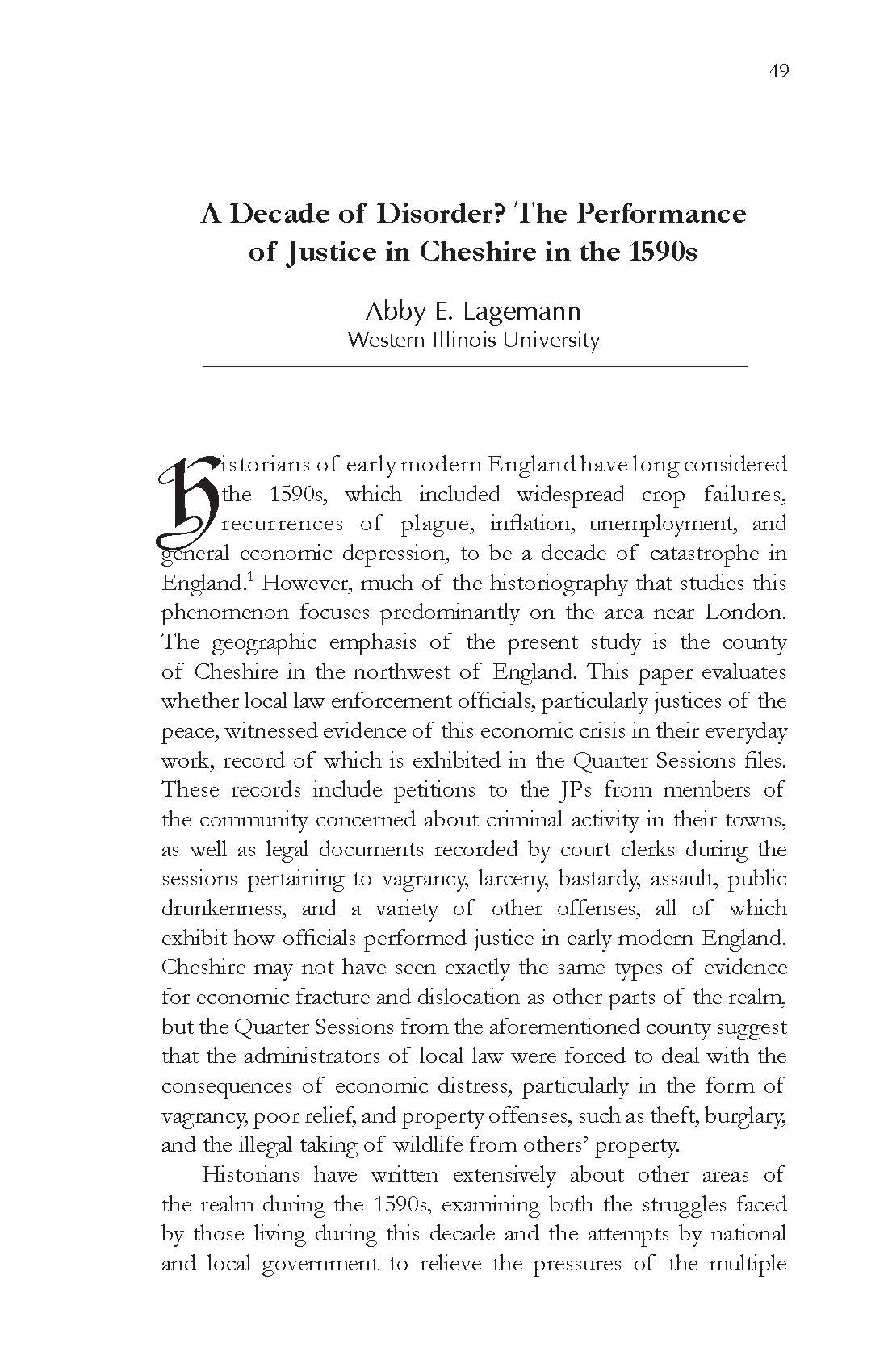A Decade of Disorder? The Performance of Justice in Cheshire in the 1590s
Main Article Content
Abstract
Historians of early modern England have long considered the 1590s, which included widespread crop failures, recurrences of plague, inflation, unemployment, and general economic depression, to be a decade of catastrophe in England.1 However, much of the historiography that studies this phenomenon focuses predominantly on the area near London. The geographic emphasis of the present study is the county of Cheshire in the northwest of England. This paper evaluates whether local law enforcement officials, particularly justices of the, peace, witnessed evidence of this economic crisis in their everyday work, record of which is exhibited in the Quarter Sessions files. These records include petitions to the JPs from members of the community concerned about criminal activity in their towns, as well as legal documents recorded by court clerks during the sessions pertaining to vagrancy, larceny, bastardy, assault, public drunkenness, and a variety of other offenses, all of which exhibit how offi cials performed justice in early modern England. Cheshire may not have seen exactly the same types of evidence for economic fracture and dislocation as other parts of the realm, but the Quarter Sessions from the aforementioned county suggest that the administrators of local law were forced to deal with the consequences of economic distress, particularly in the form of vagrancy, poor relief, and property offenses, such as theft, burglary, and the illegal taking of wildlife from others’ property.
